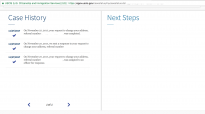san92
Member
Hi everyone
I just activated my GC at SFO today. I was told to queue in the visitors line and I did so where an amazing officer took my fingerprints and details. He then told me to walk straight to a small office where another officer checked my documents and said I’m good to go.
The whole thing lasted fairly 5 Mins.
However, I just found out the address of a relative which I had given to receive my gc and ssn are no longer residing at that address.
What Can I do?
Should I make an appointment to see a USCIS officer? Since today was a public holiday and tomorrow is too; I guess if I get slotted in for Monday I can explain the situation and advise them of the new address?
Edit: I just checked there are no available slots until 8th December. Since I will be leaving on the 6th, should I go to their office coming Monday?
Would really appreciate any advice!
I just activated my GC at SFO today. I was told to queue in the visitors line and I did so where an amazing officer took my fingerprints and details. He then told me to walk straight to a small office where another officer checked my documents and said I’m good to go.
The whole thing lasted fairly 5 Mins.
However, I just found out the address of a relative which I had given to receive my gc and ssn are no longer residing at that address.
What Can I do?
Should I make an appointment to see a USCIS officer? Since today was a public holiday and tomorrow is too; I guess if I get slotted in for Monday I can explain the situation and advise them of the new address?
Edit: I just checked there are no available slots until 8th December. Since I will be leaving on the 6th, should I go to their office coming Monday?
Would really appreciate any advice!
Last edited:

